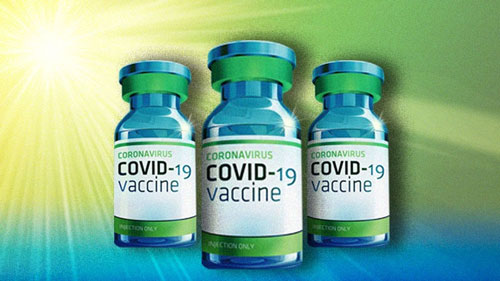This, the team believes, might be due to the number of circulating variants.
According to Dr. Franz-Werner Haas, the chief executive officer of CureVac, “While we were hoping for a stronger interim outcome, we recognize that demonstrating high efficacy in this unprecedented broad diversity of variants is challenging.”
However, he still holds out hope, explaining that, “As we are continuing toward the final analysis with a minimum of 80 additional cases, the overall vaccine efficacy may change.”
A new study from Scotland suggests that the Oxford-AstraZeneca COVID-19 vaccine, but not the Pfizer-BioNTech vaccine, is related to a slight increase in the risk of blood clotting and excessive bleeding.
The data stem from an analysis of postvaccination side effects that was carried out after participants received the first dose of either the Oxford-AstraZeneca or the Pfizer-BioNTech vaccine.
Experts emphasize that the risk is lower for the COVID-19 vaccine than for SARS-CoV-2 infection and that the benefits of the vaccine outweigh these extremely rare risks.
A new analysis from Public Health England found that both the Pfizer-BioNTech and the Oxford-AstraZeneca COVID-19 vaccines are effective after two doses against the Delta variant of the new coronavirus.
The results stem from an analysis of 14,019 people who had contracted the Delta variant — 166 of whom were hospitalized — between April 12 and June 4, 2021.
The analysis found that the Pfizer-BioNTech vaccine “is 96% effective against hospitalization after two doses” and that “the Oxford-AstraZeneca vaccine is 92% effective against hospitalization after two doses.”
Commenting on the findings, Dr. Peter English, a retired consultant in communicable disease control and immediate past chair of the British Medical Association Public Health Medicine Committee, said, “this provides good quality evidence of real-world effectiveness.”
“The effectiveness is not surprising — we know that vaccines are generally increasingly effective at preventing increasingly severe illness.
Nevertheless, it is extremely reassuring to see that vaccines’ efficacy against hospitalization with Delta variant disease is so close to their efficacy against the Alpha and original variants, and over 90% after two doses, for both vaccines.”










